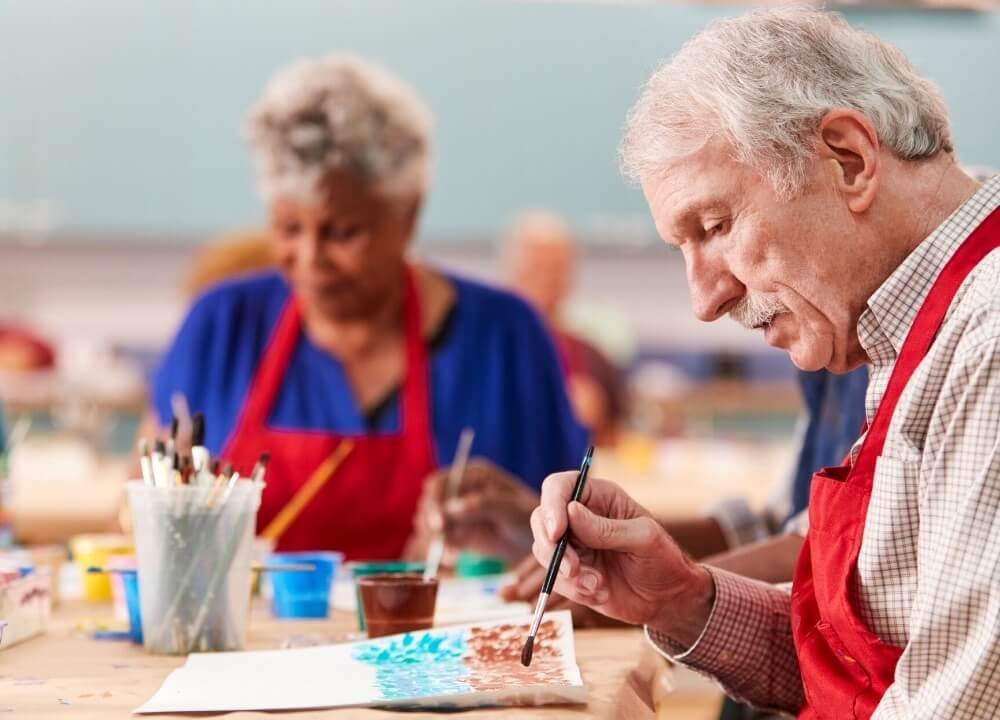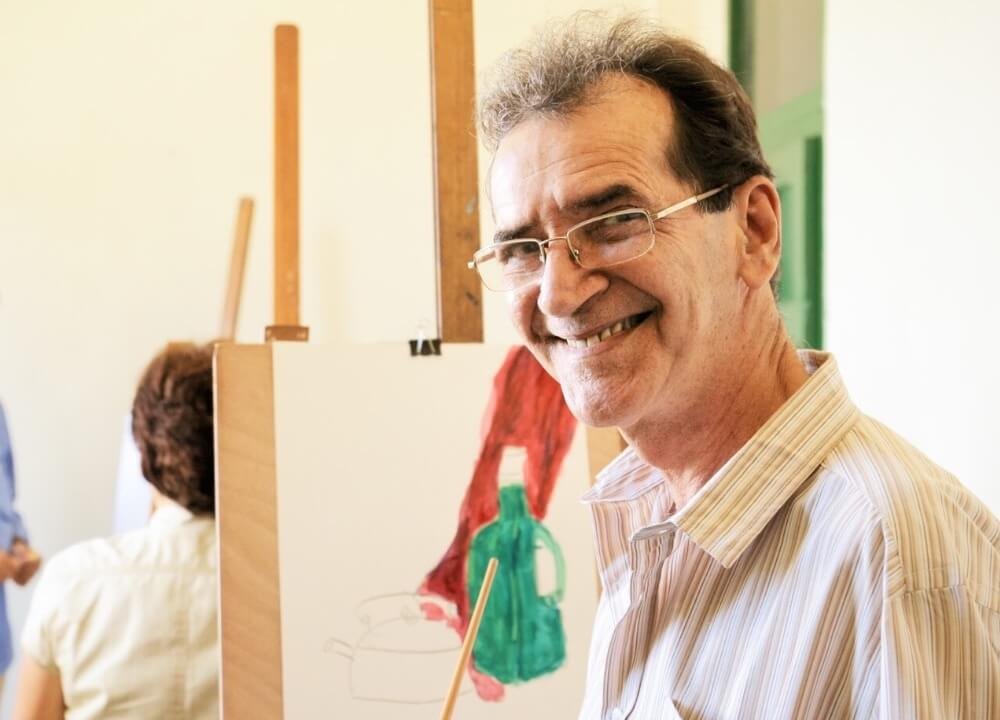If you have dementia or know someone with the illness, you may be interested in the topic of art therapy and dementia.
British Association of Art Therapies defines art therapy as a type of psychotherapy that uses art media as its primary communication mode.
Persons who engage in art therapy do not need any skill or experience in art.
In most cases, a professional art therapist will steer the art therapy sessions. Their main aim is to help clients use art materials in a safe environment to grow and change on a personal level.
In the past, paintings and drawings have been categorized as a useful part of therapeutic processes within psychological and psychiatric specialties.
How does Art Therapy Help Dementia
Now that you have an idea of what art therapy is, let us get into some of the reasons persons with dementia will benefit from art therapy.
Art Therapy Stimulates the Brain

Art projects create an avenue where patients with dementia can express their creativity in a fun and relaxed manner.
Therefore, art therapy can stimulate the brain in different ways.
This can help to stir memories and at times it can even encourage speech. Some studies confirm that art therapy activities can help boost cognitive function in several areas of the brain.
This, in turn, helps to enhance the functions of the brain, communication, and social interactions.
Engages Individuals in a Myriad of Activities

When it comes to art therapy and dementia, ill persons get a chance to engage in tons of activities that can help create pleasant experiences and memorable moments.
Nowadays, art activities go beyond drawing on blackboards of papers.
Participants can enjoy other fun activities, like:
- Using dough or clay for sculpting
- Paint by numbers
- Painting using watercolors
- Pencil or charcoal drawing
- Creating jewelry
- Making cards
- Being part of community art projects and much more
These art activities help relieve stress, stimulate senses, and boost hand strength.
Art therapy has a way of making somebody with dementia laugh, smile, move, or speak which is great especially when it comes from non-verbal seniors.
They can also create a sense of accomplishment and purpose as many persons usually feel proud and fulfilled after finishing one of their creations.
Improves Psychological and Behavioral Symptoms

A high percentage of people with dementia will exhibit symptoms such as anger, restlessness, anxiety, depression, sadness, and other psychological and behavioral symptoms as the disease progresses.
Experts believe that when persons with dementia take part in art activities, it can help regulate mood and help them express themselves in a comfortable and safe environment.
Negative emotions are reduced significantly when someone with dementia takes part in artistic activities.
Additionally, impaired individuals can strengthen self-control through free-form creations which ultimately helps to improve their quality of life reducing incidences of psychological and behavioral symptoms.
This is another reason why it is important to look into art therapy and dementia seriously.
Enhances Social Skills and Communication

Through art therapy, caregivers understand the inner world of persons with dementia better, thus, improve communication with them.
In group settings, individuals with dementia get a chance to express themselves not only to the art therapist but their peers as well as helping improve their social skills.
This is because they can form good interpersonal relationships where they no longer have to suffer the negative consequences of social isolation.
Studies focusing on art therapy and dementia revealed that even those with severe dementia were able to strengthen their sense of belonging in a group after voluntarily engaging in coloring activities under caregiver guidance.
The individuals with the illness enhance their social skills by focusing more on eye contact and the exchange of body contact.
It is also common for patients with dementia to become more vocally active when they are participating in art topics they are familiar with.
This is because the topics may stimulate pleasant past memories which trigger their interest in specific art activities, hence promoting social skills and self-expression.
Helps Alleviate Caregiver Burden

Taking care of people who have dementia is quite challenging. This is especially because there is no textual description of how the disease progresses. The condition will also not affect all persons identically.
Carers must, therefore, examine for subtle changes in the persons they are looking after when their communication abilities start to diminish.
With art therapy, caregivers can know the proper steps to take when offering care depending on how the individual behaves while engaging in various activities.
For instance, abrupt changes in art style may be an indication of further progression of the illness.
During group sessions, caregivers also get a chance to interact with each other where they can get emotional support as they share pointers on care experiences.
Closing Thoughts
It is undeniable that there are a lot of positive things that persons with dementia get when they participate in art therapy.
In addition to opening up a new effective communication channel as well as reduce negative emotions, art activities can also help strengthen and develop fine motor skills through hand and brain coordination.
Studies are also going on concerning the benefits of art therapy and dementia.
For your information, there are also many other alternative therapies for dementia that help with the patient’s condition.

